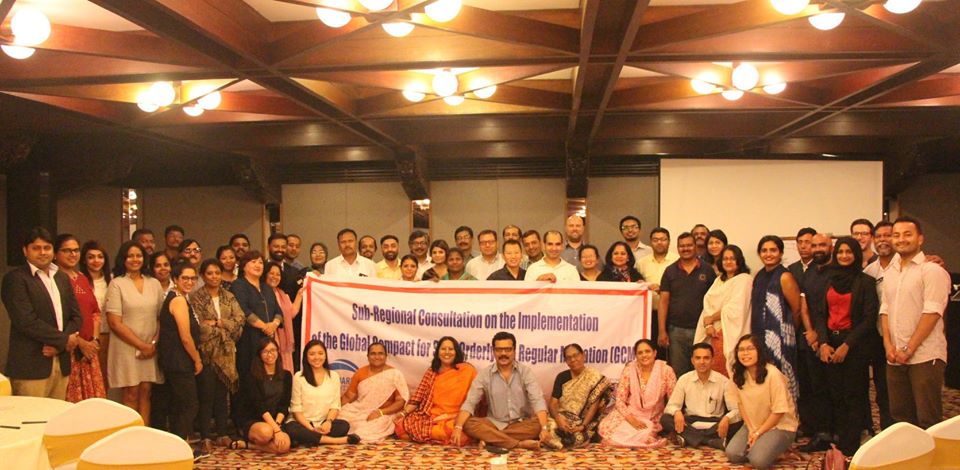
On 3-4 May, delegates from SAARC governments will come together for a crucial discussion on Agenda 21 of the 2014 Kathmandu Declaration. We call upon these governments to adopt a strong Plan of Action to implement this historic agreement to cooperate on the protection of the millions of South Asian migrant workers. The upcoming consultative workshop of SAARC delegates will shape the Plan of Action that will be adopted later this year in Pakistan. Let us remind SAARC governments to rise to the occasion and not allow politics to stand in the way of South Asian solidarity in support of its citizens abroad.
We call on SAARC governments to recognize at last the magnitude of the contributions that migrant workers make and take concrete steps to collaborate on protecting their many citizens abroad. Migrant workers make enormous contributions to economic growth and government revenue through remittances. India receives roughly 70 billion USD annually from the remittances of its citizens abroad; Pakistan, 15 billion USD; and Bangladesh, 14 billion USD. Nepal relies on its citizens abroad for 29% of its GDP (World Bank); Bangladesh and Sri Lanka for 9% (World Bank, 2014). We call on them to do so by adopting a strong Plan of Action on Agenda 21.
The Plan of Action drafted by Nepal is promising. If SAARC governments rise to the occasion and adopt it, the working conditions of millions of South Asian migrant workers would be positively affected. Whether in construction or domestic work, whether male or female, whether Indian or Pakistani, migrant workers find themselves forced to do work that is different than what they had agreed to, with lower pay, longer hours, and extra tasks. Powerless to confront their employers, and without recourse to help from their governments, they work in often dangerous and abusive workplaces, where they face physical and sexual abuse, overwork, withheld pay, forced confinement, exposure to health and safety risks, denial of leave, and many other abuses.
The fate of millions of South Asian migrant workers rests in the balance of the upcoming discussions in
Kathmandu. We call upon delegates to agree on a Plan of Action that at a minimum agrees:
To establish a standard employment contract for South Asian migrant workers outside of the region.
To establish an effective regional mechanism to enforce the standard contract, promote the further advancement of the rights of migrant workers abroad, and engage in dialogue with countries of destination.
To establish a regional mechanism to discuss and address the concerns and issues faced by migrant workers within SAARC
The current draft of the Plan of Action provides for both a standard contract and regional mechanism, and the draft adopted on 3-4 May must absolutely include these three crucial points to address the abuses faced by migrant workers. With the strength of a collective stance on a standard contract, SAARC could pressure countries of destination to accept decent standards of work for their citizens. An effective regional mechanism would ensure the enforcement of these standards and will be crucial to promoting
the further advancement of the rights of migrant workers abroad. We call upon them to boldly seize this opportunity to be at the forefront of SAARC cooperation on the promotion and protection of the rights of migrant workers.
****
Migrant Forum in Asia (MFA) is a network of grassroots organizations, trade unions, faith-based groups,
migrants and their families and individual advocates in Asia working together for social justice for migrant workers and members of their families. Since 1994, MFA has thrived into a formidable migrants’ rights advocacy network in Asia, affecting significant influence to other networks and processes on the globe. To date, MFA is represented in 26 countries in the Asia – Pacific. MFA members and partners are also coalitions and networks, bringing the membership in the region close to 260, and growing each year.
